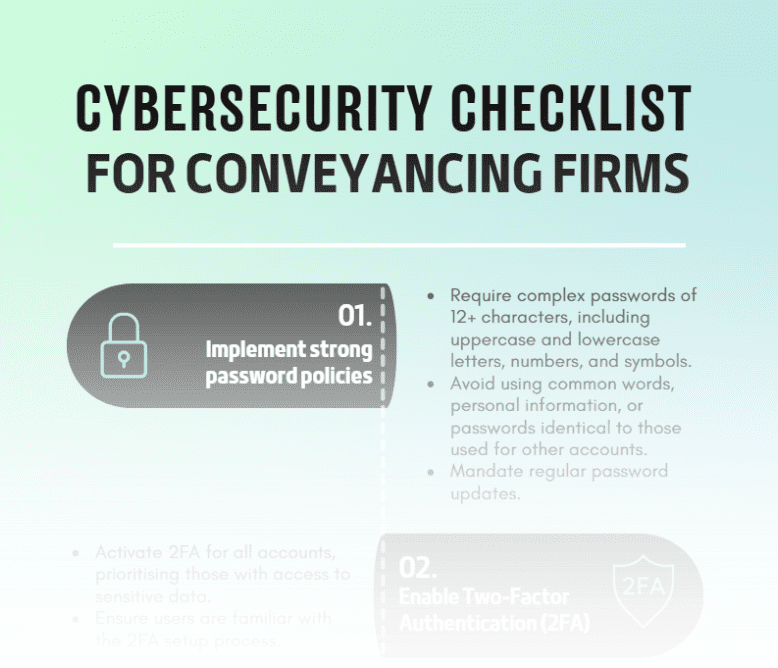As property transactions shift to digital solutions and confidential information is exchanged electronically, the need for strong cybersecurity measures has become more paramount than ever.
In the age where digital transformation is reshaping industries, conveyancing is no exception.
The potential fallout from a cyberattack can range from financial losses to data breaches, undermining the credibility of conveyancing firms if they fall prey.
In order to prevent harm in reputation and business success, a conveyancer must learn the following considerations and strategies for ensuring the security of their practice.
Recognising the vulnerabilities
Conveyancers consistently handle sensitive data, including personal identities, financial data, property particulars, and legal documents.
This wealth of information makes conveyancing firms an appealing target for cybercriminals aiming to exploit vulnerabilities for their own gain.
From phishing attacks to ransomware and data breaches, the potential cyber threats are diverse and the repercussions for both the firm and its clients are severe.
Comprehensive cybersecurity strategies
Fortunately, several methods exist to help in preventing cyber-attacks, these include:
1. Employee education
Human error is often the weak link when it comes to cybersecurity, so providing training and awareness programs for all staff members is crucial.
From conveyancers to administrative personnel, everyone should be well-versed in cybersecurity risks and best practices. Regular updates and simulated phishing drills can help maintain a cautious and informed workforce.
2. Encrypted Communication channels
Embrace encrypted communication channels for sharing confidential data.
Whether it is encrypted email services or secure file sharing platforms, these tools ensure that sensitive information remains shielded from unauthorized access during transmission.
3. Multi-factor authentication (MFA)
The implementation of MFA across all accounts and systems used in the conveyancing process provides an additional layer of protection.
MFA requires users to verify their identity through multiple methods before gaining access, reducing the risk of unauthorised entry.
4. Timely software updates
Outdated software can expose vulnerabilities that cybercriminals exploit. Regularly updating operating systems, software applications, and security patches is essential to fortify your defence against evolving threats.
5. Strong password protocols
Enforce strong password policies for all accounts and systems. Passwords should be intricate, unique, and regularly updated.
Consider using password management tools to securely keep track of passwords.
6. Integrated practice management systems
Incorporating a practice management system (PMS) into your cybersecurity strategy can streamline operations while enhancing security.
A reputable PMS should offer features like safe communication channels, data storage and encryption, and regular security updates.
By centralising sensitive information within a secure system, conveyancers can improve efficiency while minimising the risk of data exposure.
As digital conveyancing takes over the industry, cybersecurity should be placed as a priority to secure the integrity of both your firm and clients’ data.
Through proactive implementation of robust cybersecurity measures, staying informed about emerging cyber threats, and diligently training employees, conveyancers can foster a secure environment for operations and clients alike.
This investment not only protects against financial and reputational harm but also cements client trust in a world driven by digital connectivity.
By integrating advanced practice management systems into their approach, conveyancers can effectively navigate the digital landscape while maintaining the highest standards of security.






